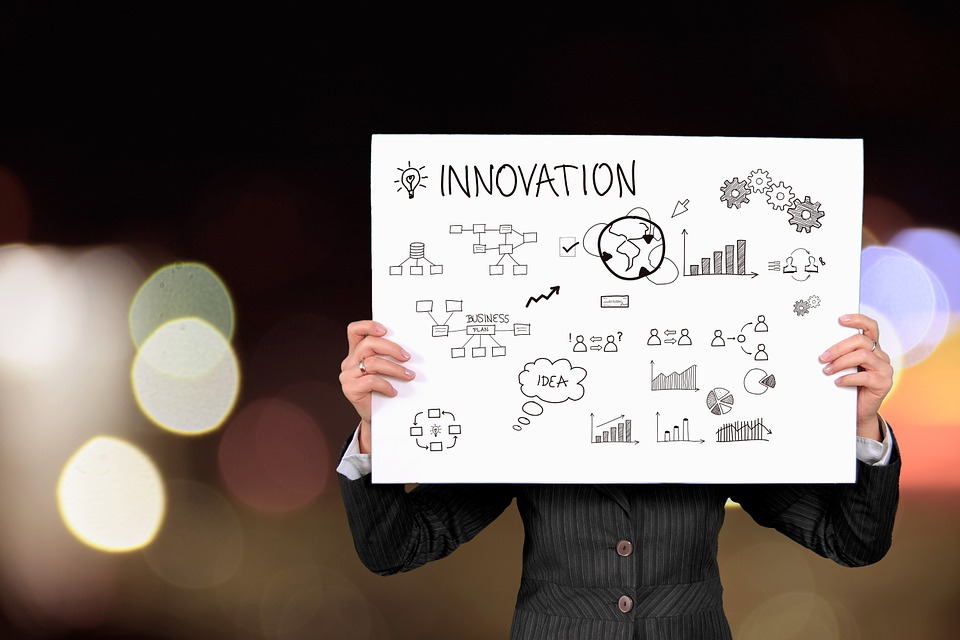Artificial Intelligence
Slow Down, Mustang SALY: Time for Innovation
You could not make it through 2019 in the accounting industry without hearing the buzz word of the day, innovation. Can it be true that the accounting industry stands poised for an age of innovation or will SALY (Same As Last Year) continue to prevail?
Dec. 11, 2019

You could not make it through 2019 in the accounting industry without hearing the buzz word of the day, innovation. Can it be true that the accounting profession stands poised for an age of innovation or will SALY (Same As Last Year) continue to prevail? Will we look back in amazement in a few years at how our profession has evolved—marveling at the incredible impacts we pioneered for our clients and our people? Are we pivoting toward efficiency and value-based pricing, reducing the long, hard hours we work, shifting our profession from nerdy back office number-crunchers into strategic advisors?
The business management consultant Peter Drucker has defined innovation as “the specific function of entrepreneurship where existing resources are enhanced.” Innovation demands those two key words: entrepreneurship and enhanced. This raises the question: are those two components present today in the accounting profession? Are we fueling innovation or just flipping around the latest buzzword to appear more relevant?
Historically, when it comes to being entrepreneurial, the accounting profession has not yielded a steady stream for the Hall of Fame. However, this is changing—and to no small degree, the millennial mindset is driving it. As millennials mature into managerial and leadership roles, they are re-shaping when, where, and how we deliver value as accountants. As discussed in previous articles, being entrepreneurial is built into the DNA of millennials. So, this trend will only continue.
Disruption in slow motion
Now, the term enhanced connotes small, minor changes. Drucker’s observation is true, because disruption is more often evolution, not revolution. Small steps accrue significant value over time—rather than overnight.
Before the iPhone, we saw mobile phones as simply a device to make a call. Before Elon Musk, we flirted with all kinds of electric vehicles, but they lacked mass appeal. Entrepreneurs enhance things we already know—and kind of love, but not yet.
Innovation means feeling inspired and compelled to effect change, to invest in one step beyond. Innovation means taking comfort in what’s uncomfortable. Because we know there is no other long-term choice for survival and relevancy.
Kodak drove innovation, and it was George Eastman’s entrepreneurial spirit that led to one enhancement after another. Kodak changed photography and filmmaking. The Nest thermostat is innovative, enhancing a tired, old line product category. Before the Nest, thermostats were not a thrill-a-minute category. But, integrating WiFi and making Nest a “learning device” reinvented thermostats—leveraging technology, like Bluetooth, that’s rather pedestrian to be quite honest. But these innovators enhanced what already existed, tweaking and pushing the same-old, same-old into something that seemed brand new.
SALY slows us down
The opposite of innovation is our old friend, SALY. SALY sits in a corner of the office and repeats in our ears, “We always did it this way.” Do we embrace SALY and stagnation because she feels tried and true…for now?
Innovation calls for two ingredients. Entrepreneurs must imagine a new and better reality. Enhancements act to push, creep, crawl, or leap things forward, changing the status quo. Our industry is primed for innovation, and if we take a moment to stop and look at the ground shifting below us, we see it is already upon us.
When it comes to innovation in accounting, the millennial generation is leading the charge. Millennials are seeing the opportunities afforded by innovations in software, work styles, and globalism. They are launching non-traditional finance and accounting firms that leverage technology and ignore all the old lines in the sand. They want to be intrinsic strategic advisors to their clients—that utility player playing on both sides of the team’s offensive and defensive squads.
Take a look at the most recent 40 under 40 (https://cpapracticeadvisor.com/21106742). You will find many people on the list fitting this mold. Fueled by this mindset, they are taking advantage of technology that already exists in the market, making it easier for them to enhance what we have always done as accountants.
This second component of innovation, enhancement, is largely composed of technologies and platforms that quietly disrupt the accounting profession’s table stakes. Artificial intelligence, machine learning, and bots are here to stay. Combine these ingredients with the rapid rise in payroll, accounting, and tax solutions—folks, we need to move off the dime.
A new era in accounting
Once upon a time, accounting software stuck to SALY: bookkeeping, tax returns, fixed assets, and audit tools. Now, accounting platforms deliver a wide range of solutions: dashboards, bots, CRM, payment processing, custom app-building, automated bill payment, and more.
This sprawling effect is our opportunity to re-think SALY and truly create enhancements that drive innovation. By infusing a little entrepreneurial drive into our practices, it is a better long-range bet to side on innovation versus staying the course. The tea leaves are telling us that the game is changing.
SALY, it’s not you, it’s me
As we head into 2020, the new year invites accountants to take a deep breath and step out of the comfort zone. Tell SALY she can start seeing other people. Embrace innovation in your life, in your home, your firm, your department, your peers. Embrace change and move towards a future where the notion of calling your accountant is a weekly thing—maybe a couple times a week, because the accountant reframes how the client assesses opportunity and risk.
If entrepreneurs and millennials are going to run our world going forward, let’s embrace it…and own it. If we can embrace innovation we can move toward a bright future of accounting and combine our vision, technology, and people.
